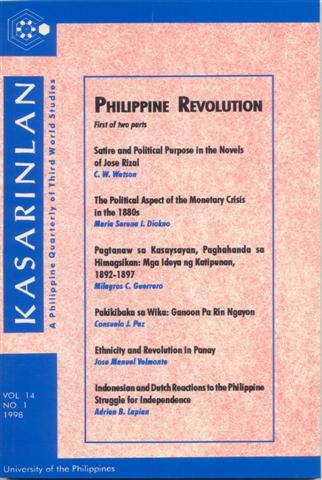The Political Aspect of the Monetary Crisis in the 1880s
Abstract
Aside from opening a door to a little known chapter of Philippine economic history, Diokno's article also gives us a glimpse about the relatively integrated economic order of the 19th century and our part in it. The monetary crisis also spoke of morethan just the economy but also the prevailing political landscape at that time. Those guided by the principle of assimilation dominated the debate on the economic crisis. This is perhaps because most of those hurt by the crisis were not real Filipinos but Philippine Spaniards (and peninsular producers engaged in the Philippine trade) who naturally identified with Spain. And besides, the attention of most of the politically inclined locals was directed more on the growing separatist movement than on the economic crisis. Since the currency issue was disconnected from the revolution waged by real Filipinos, there is then an apparent disjunction between the political and economic struggles. How to assert sovereignty in both a political and economic sense was the first and most enduring challenge of a nation aspiring for independence.
Published
2009-07-24
How to Cite
DIOKNO, Maria Serena.
The Political Aspect of the Monetary Crisis in the 1880s.
Kasarinlan: Philippine Journal of Third World Studies, [S.l.], v. 14, n. 1, july 2009.
ISSN 2012-080X.
Available at: <https://journals.upd.edu.ph/index.php/kasarinlan/article/view/1406>. Date accessed: 20 aug. 2025.
Section
Features
By submitting a manuscript, the authors agree that the exclusive rights to reproduce and distribute the article have been given to the Third World Studies Center.



